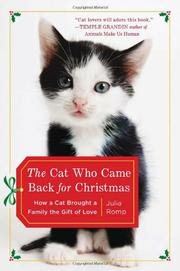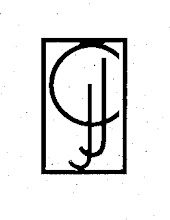I’ve just finished reading the awkwardly titled The Cat Who Came Back for Christmas: How a Cat Brought a Family the Gift of Love by Julia Romp. It’s the perfect feel-good, breezy read most of could use to lift our spirits.
Yet I’m not sure Temple Grandin, who endorsed the book with “Cat lovers will adore this book,” got it right. Cat lovers may squirm with impatience through the first 64 pages, wondering whether the cat will ever enter the story. If all you’re looking for in Romp’s memoir is an animal story, then you may be disappointed—for it is so much more than that.
Romp, who is not a professional writer, gives us a temporary view into her world of unexpected single motherhood. We share her distress when doctors fail for years to properly diagnose her baby’s odd behaviors, we suffer her embarrassment when she’s in public with her unusual boy, and we nod knowingly as her absolute and unshakeable love for her son George motivates her to constantly seek a connection with him.
George is autistic (hence the reason Temple Grandin was asked to comment on the book). As much as the general public is aware of autism through the mainstream media, there remains a grave disconnect between our knowledge and our understanding. Romp magnifies for her readers how other people—children, teachers, strangers—respond to George and how George perceives the world he shares with them. We learn quickly that they may as well be two different planets.
If you know someone who is dealing with autism in any capacity, I encourage you to read The Cat Who Came Back for Christmas (also published as A Friend Like Ben). On second thought, you should probably read it regardless, for if recent statistics are accurate, you WILL cross paths with autism at some point in your life. And if you’re informed about autism’s effects on families, you may enhance your understanding and compassion for those families. When an autistic child starts screaming in a mall, you may refrain from tsk-tsking over his bad behavior and realize instead that he may well be in pain from the lights and blaring music or that he feels threatened by the scores of people around him. In this respect, the book deserves a wider audience.
As for animal lovers, the book provides a terrific role model (Romp herself) of animal advocacy. Cat and animal lovers should read it if only to learn how to find a lost pet. Romp’s search for her son’s beloved Baboo (aka Ben) is a showdown of determination and desperation. As her net widens, so does her stewardship: False leads (cats mistakenly identified as Ben) get new guardians or are returned home through Romp’s efforts. She helps others along the way because it’s the right thing to do—even when her hopes of recovering her own feline are fading.
Romp writes of the cruelty that percolates during a search—the people who cursed her out for putting a leaflet on their cars, the people who simply meowed into her answering machine, the person who claimed to have Ben and said, “We’ve got him and you won’t get him back.” She writes of the loss of the small, furry family member: how it devastated her son—“I can’t breathe. I can’t swallow. My heart is coming out,” he said over and over—and how it unraveled her relationship with him.
The Cat Who Came Back for Christmas probably won’t win any literary awards, but don’t let that stop you from reading it. It’s engaging and instructive nonetheless. It’s a story of loss and fierce love—for a child, for a cat, and for the family unit made whole by each.
Subscribe to:
Post Comments (Atom)





No comments:
Post a Comment